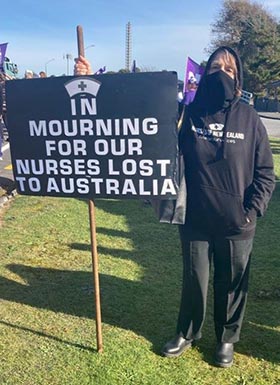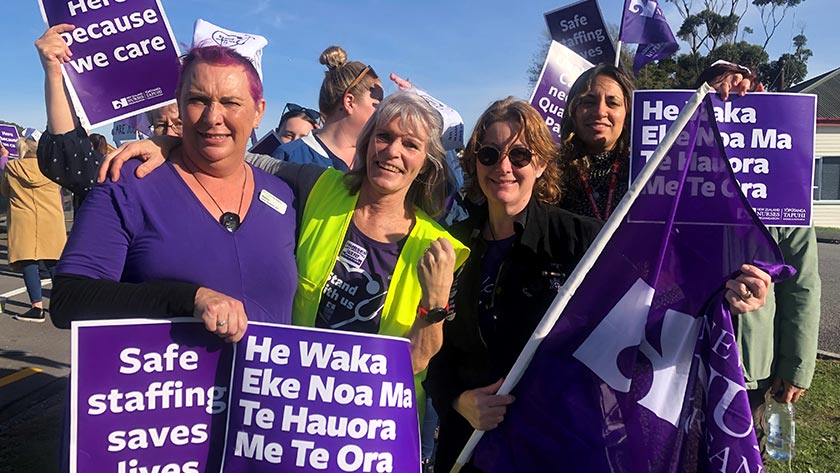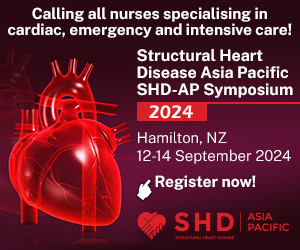Speaking from the picket line of 100-plus nurses, Hofman said: “This is not going to stop at just one strike. Nurses are angry now. During the last strike they were frustrated and emotional but now they are just angry. They’ve reached the stage where enough is enough.”
Nurses were not going to accept a pay offer lower than the rate of inflation. “But this is not just about pay. It is about unsafe staffing and working conditions as much as the pay offer. The situation is unsafe for patients and unsafe for us.”
Nurse practitioner Sara Mason was on the picket line because “I’m passionate about nursing and the future of nursing and our ability to do our jobs within a medical model, when more is expected of us without giving us the respect we deserve”.
Mason works for the West Coast District Health Board (DHB)-owned general practice, Te Nīkau Health Centre, which is part of the hospital complex. While she supports a focus on the lower paid, she points out that the GPs in the practice earn “a whole lot more than I do for exactly the same job, get better benefits, get time to do their jobs and get $15,000 a year for professional development”. Nurses working for the West Coast DHB get $15,000 over three years for professional development, she said.
Mason was heartened by the number on the picket line and the strong public support for nurses, in the region which gave birth to trade unionism in Aotearoa.

Clinical nurse specialist, cancer care co-ordinator and long-time delegate Andrea Reilly was picketing to show solidarity with all nurses, particularly her NP colleagues who earned more than $100,000 and who would not get any pay increase under the current offer.
“They have studied and worked to better themselves. Some have double masters degrees. They are autonomous practitioners and should be recognised as such.”
She also emphasised that the strike was about “far more than just pay”. Safe staffing and working conditions were equally important.
Reilly was pleased DHB nursing leaders had shown support for the striking nurses.
Grey Hospital registered nurse Caroline Ragg was embarrassed nurses had to go on strike “to try and get what should be ours”. The Government needed to prick up its ears and do something to retain experienced staff who were “haemorrhaging to Australia”.




